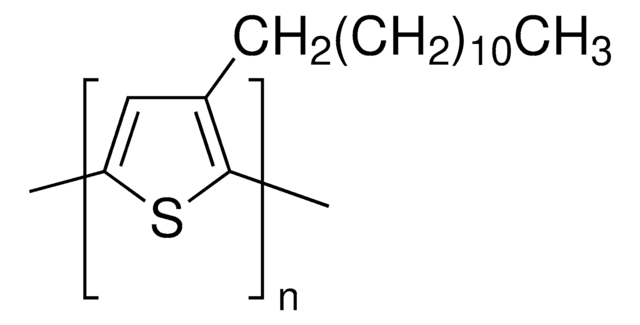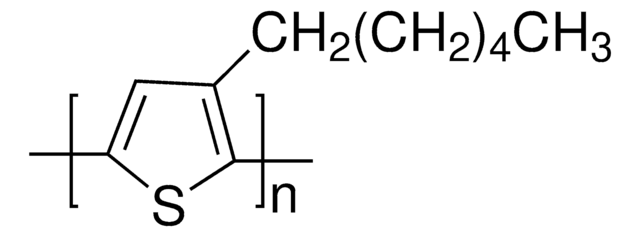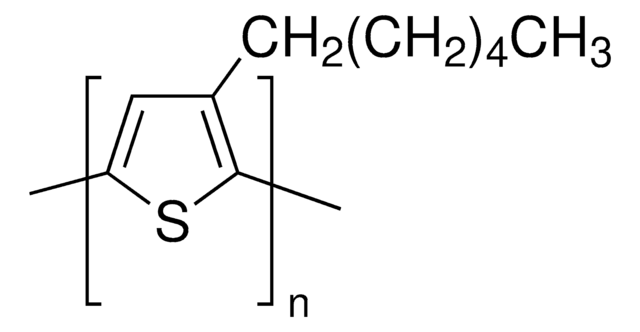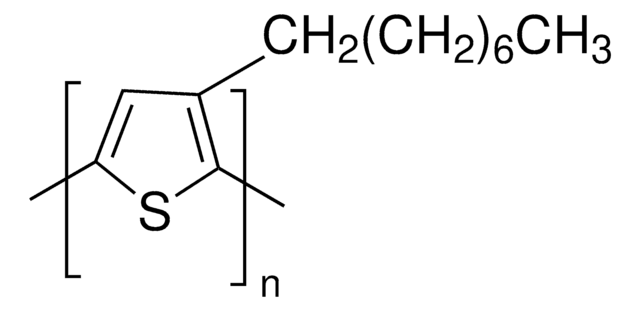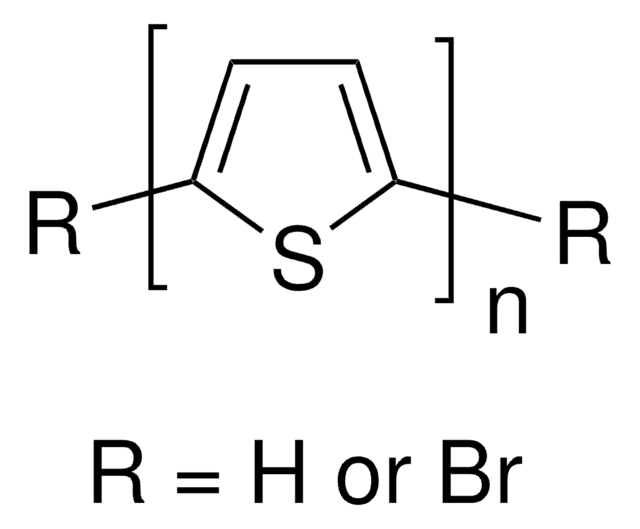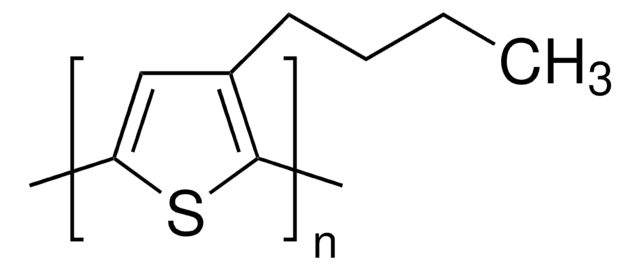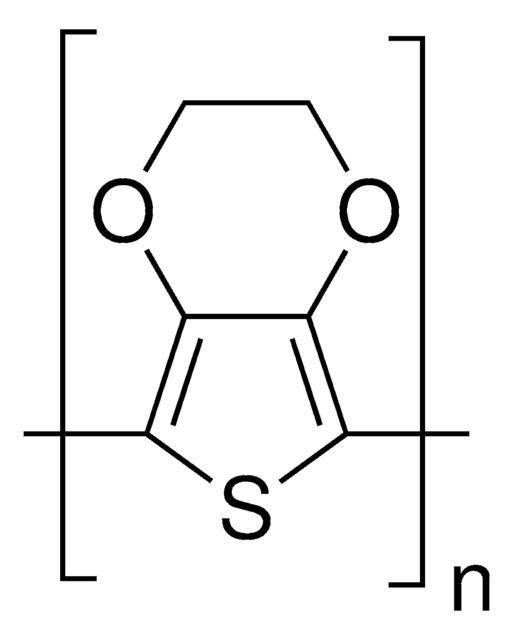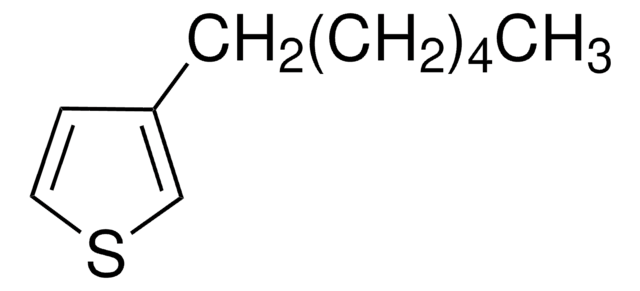495344
Poly(3-decylthiophene-2,5-diyl)
regioregular, average Mw ~42,000, average Mn ~30,000
Sinónimos:
P3DT, P3DT-RR
About This Item
Productos recomendados
Quality Level
mol wt
average Mn ~30,000
average Mw ~42,000
color
black
fluorescence
λex 441 nm; λem 567 nm in chloroform
¿Está buscando productos similares? Visita Guía de comparación de productos
General description
Application
Packaging
Legal Information
Rieke is a registered trademark of Rieke Metals, Inc.
Storage Class
11 - Combustible Solids
wgk_germany
WGK 3
flash_point_f
Not applicable
flash_point_c
Not applicable
ppe
Eyeshields, Gloves, type N95 (US)
Elija entre una de las versiones más recientes:
¿Ya tiene este producto?
Encuentre la documentación para los productos que ha comprado recientemente en la Biblioteca de documentos.
Los clientes también vieron
Artículos
The application of conducting polymers at the interface with biology is an exciting new trend in organic electronics research.
Intrinsically stretchable active layers for organic field-effect transistors (OFET) are discussed. Polymer structural modification & post-polymerization modifications are 2 methods to achieve this.
Nuestro equipo de científicos tiene experiencia en todas las áreas de investigación: Ciencias de la vida, Ciencia de los materiales, Síntesis química, Cromatografía, Analítica y muchas otras.
Póngase en contacto con el Servicio técnico